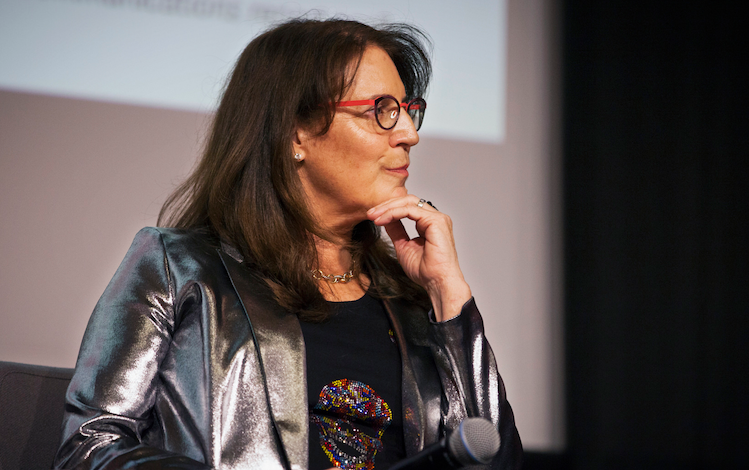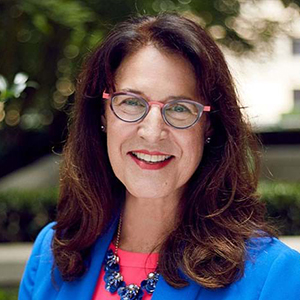

Full Visibility: The Importance of Truly Seeing Others
When I appeared as a guest panelist at a communications industry event last year, I was there as an expert, a CEO sharing what I’ve learned during my many years in the business. So I was interested when a comment from a Black woman in the audience again proved that we ALL need to continuously learn and seek teachable moments.
During the panel, the person described her frustration with the concept of “colorblindness.” People of color, she said, don’t want white people to strive for colorblindness. They want to be seen for who they truly are, and they want their lived experiences to be recognized. “If you’re trying to be colorblind, you might make someone feel that you’re not seeing that others have different lived experiences,” she said.
Although I hadn’t been the one here to mention colorblindness, her comment made me think back to a keynote speech I gave in Goa, India, six months earlier, where I stressed the importance of respecting people from different backgrounds. The speech closed with a video that featured a song from the Nelson Mandela biopic Invictus: “Colorblind.” At the time, I thought it was inspirational and represented a goal we should set: making sure we run our companies with diversity, equality and inclusion at the center. Now I was learning something completely unexpected about the music choice I had so carefully selected. The lesson: We must keep our minds always open and truly listen when others with different experiences from ours are sharing their own truths.
This past year, we leaders have had a lot of teachable moments. So many events, from the pandemic to the many demonstrations of political and social unrest, have made clear that we’re living in a very different world than we were a year and a half ago, and many leaders have felt blindsided. I’m convinced though that this uncertainty has also sparked a new mindset among business leaders. A recently released report from WE and YouGov, Rethinking the Purpose and Meaning of Leadership, finds that 86% of C-suite executives and senior managers say they have become more introspective during this time. They’re reflecting on how their leadership approaches need to change, and how they can improve their communications with stakeholders. In the process, they’re unlocking new ways to lead.
Check your blind spots
In a recent interview, PwC U.S. Chairman Tim Ryan described shutting down the firm in 2016 for a daylong discussion on race, a response to violent events in several U.S. cities at that time. “It went great. But when the day was over, I was leaving the office and one of our Black senior managers grabbed me in the lobby and he said, ‘What’s your role as a leader of a brand like PwC outside of PwC?’ We had just made it through this big day. I was hoping to go back, grab something at Subway, just relax and decompress. And that night I didn’t sleep. Because he was right. I do have a responsibility,” he said.
Rather than respond defensively to negative feedback on what he thought was a job well done, Ryan instead took the opportunity to soul-search on what he had missed. The executives and managers WE surveyed also told us they were committed to identifying their blind spots. The majority said that during the past year they have deepened their awareness of their personal fears, limitations, defenses or impulses. The majority also revealed that they’re working to identify gaps between their intentions and actions.
Today it’s vital for leaders to be honest with themselves about these gaps, because you don’t always have the benefit of an ally pointing out the problem. Nobody ever called me out about my use of the “Colorblind” song, but I called myself out. My job is to make people feel seen, so when I realized I had done something that might have the opposite effect, I was glad for the opportunity to see my mistake. That’s what enables me to grow as a leader.
Develop 360 vision
WE’s research makes clear that leaders are highly motivated to connect with and learn from their stakeholders; 69% said stakeholder engagement is one of the most important leadership behaviors for 2021, and they placed particular importance on prioritizing women and people of color.
That is critically important, because research shows that when people in more advantaged groups speak on behalf of underrepresented groups — for example, when men speak out on behalf of women, and white people advocate for people of color — those concerns are more likely to be heard. Although this finding might be frustrating, for leaders the takeaway is clear: You can’t just pass the mic. If you’re a man, it’s not enough to simply give the floor to a female executive to explain the concerns of women at your firm. If you’re white, don’t expect your BIPOC employees to be the learning module for everyone else. That’s not seeing your employees — that’s just passing the buck.
The good news is the majority of leaders told WE they’re seeking self-awareness in real time, not just after the fact. They understand that they need to do more than just accept feedback. They must do the internal work that will give them the mental agility to see things from perspectives other than their own. They must develop these empathy muscles so that they can internalize the concerns of other groups.
Take off your qualification goggles
In our survey, 74% of leaders said being collaborative with stakeholders is more important to them than it was a year ago. These leaders understand that employee and community relations must go beyond financial donations or other forms of support. We must partner with constituents and tap into their wisdom to create meaningful solutions.
That’s why I’m extremely encouraged to see that many employers, like IBM and Netflix, have dropped college-degree requirements for an increasing number of white-collar positions. These requirements are often a barrier to people from low-income communities. Now these brands are able to tap into a much deeper talent pool.
In doing this, these brands are taking off their degree blinders and telling these job candidates “I see YOU.” I see that you spent the past four years working the graveyard shift at a factory warehouse while caring for your sick mother. I see that you rose from supermarket cashier to produce manager in just two years. I see that you know how to install an air-conditioning system. I see that you started your own daycare business. These experiences should count just as much as time spent studying romantic poetry, leading the crew team or taking a gap year in South America.
Keep your eyes open
In 2020, leaders saw many of the deep flaws in our system, and I’m very encouraged that the upheaval has prompted a strong desire to change. In 2021, we need to start delivering on these insights. As we emerge into this new world, we will continue to make mistakes and discover new blind spots. That’s not a problem. We don’t have to be perfect, but we do need to be brave enough to own our mistakes. If we can see ourselves for who we truly are, then we’ll be able to see others too. And if we can expand our vision of ourselves and one another, the future looks very bright.
The latest blogs from WE
Decoding Gen Alpha: A Primer on the Next Gen of Consumers
Why Gen Alpha Will Fuel Spending This Season
Why Reputation Is a Business Driver in Healthcare


